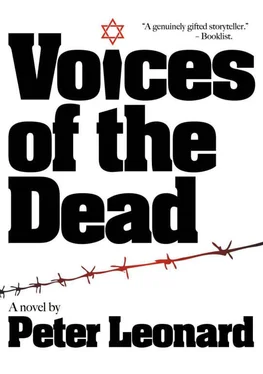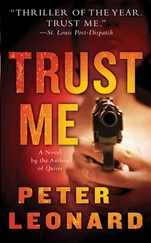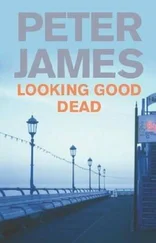“Ms.,” the blonde Jew said. “She’s divorced, went back to her maiden name. Mitch, her ex, was murdered. In Georgetown for God’s sake, our nation’s capital. Can you believe it? Horrible, a real tragedy. What’s happening to the world?”
Hess waited for an opening but she kept talking.
“Joyce, God bless her, has taken a leave of absence. Needs some time off to get her head on straight. Who wouldn’t? Poor thing.”
“I would like to say hello. If that is possible.”
“No one knows where she is.”
“Joyce came highly recommended.”
“Who referred her, if you don’t mind my asking?”
“A friend in New York.”
“You’re not going to tell me, are you? I’m sure you have your reasons.” She smiled. “I can assure you, Mr. Landau, you’re in good hands. I was realtor of the year in 1970. I’ve been selling property in Palm Beach since the early fifties. I know the island better than anyone.”
Modesty wasn’t one of her attributes.
Hess endured her for another hour while they walked through the house empty of furniture, the woman explaining architectural details: beamed fourteen-foot ceilings, leaded glass, marble bathrooms, teakwood paneling, her voice sounding distant to him at times as he withdrew and thought about killing her. Throwing her over the upstairs railing onto the French limestone foyer thirty feet below. See if that would silence her.
When the tour was complete Hess told the woman he was impressed, however he wanted to see some other estates for comparison before he made his final decision. He was sure he would make a purchase within a few days, a week at the most.
They got off the Turnpike, Harry paid the toll and took Southern Boulevard all the way to Palm Beach, going over the bridge and going left on South Ocean Boulevard, Cordell wide-eyed looking at the oceanfront mansions set back behind sculpted hedges and sea grape. Scattered palm trees giving a lazy relaxed feel.
“Harry, you see that?” Cordell pointing at a ten-thousand-square-foot faux Tuscan villa with a circular brick driveway behind an iron gate that made Harry’s Huntington Woods house look like a shack.
“Like it?” Harry said.
“No, why would I want to live in a place like that?” Cordell grinned at the thought. “Where all these people get their money at?”
“Maybe they sell heroin,” Harry said. “I understand you can do pretty well.”
“Oh, I see you got your sense of humor back.”
They came up on Worth Avenue, went left to South County Road, passing shoppers, passing Mercedes-Benzes, Rolls-Royces, passing glitzy storefronts.
“Where’s Joyce at?”
“An estate. I think it’s right up here.”
They passed Royal Palm Way, Cordell looking down the row of evenly spaced palm trees with their long straight trunks and high plumes.
“What’s the plan?”
“I don’t know.”
“Come again?”
Harry passed the Breakers, pulled over and turned around. “I’m going the wrong way.” They went back along the water, south on the beach road to 1960, the address Joyce had given him. The island was narrower along this stretch, the estate property extending from the beach road to the intercoastal. There was a decorative iron gate closed across the driveway. He went right on a narrow lane just past the house, and drove along a white seven-foot-high wall bordering the property. Another paved lane behind the estate led to a four-car garage.
He went back out to the front gate and rang the bell. A woman with an accent — Spanish or Italian — answered the intercom.
“Yes, who is this, please?”
“Harry Levin.”
The gate opened. He drove in and parked on the circular drive. A plump dark-haired woman, mid-thirties, wearing a light-brown uniform, came out the front door and approached the car. Harry got out.
“Welcome Señor Levin. You must be tired from your journey. Please come in. My name is Josefina.”
“Nice to meet you. Where’s Joyce?”
“I am sorry, the Señora is not at home.”
“Where is she?”
A Nazi might be coming to kill her but she wasn’t going to skip her maintenances. She could see her auburn hair starting to turn gray at her temples. Joyce had been getting her hair colored for about ten years, freaking out when she saw the first signs of gray when she was thirty-eight.
She would have Josefina drive her to the salon on Peruvian, and pick her up. If Harry Levin called, tell him where she was. She would wear a sun hat with a wide brim, hide her face, slip in and out of the salon without being recognized.
No one except Lenore knew about her situation, or where she was staying. Joyce had to confide in someone and trusted Lenore. They were good friends. They had talked a couple of times since she went into hiding. Lenore was showing an oceanfront estate to one of her customers, a referral, Southern gentleman from Atlanta. “Sounds like Clark Gable doing Rhett Butler,” Lenore had said. “Heard you’re wonderful.”
“That part’s true,” Joyce said. “What’s his name?”
“Emile Landau. Nice guy, very friendly.”
The name didn’t ring a bell. “Who referred him?”
“A friend from New York was all he said.”
Joyce had sold a property for a man from Manhattan, Bob Meisner, but he hadn’t called and recommended anyone. “What’s he look like?”
“Fifty, six feet tall, hair slightly gray, wears a golf cap,” Lenore said.
“You just described half the men in Palm Beach. The other half is older. He have a goatee by chance?”
“Not that I noticed.”
Hess followed her for the remainder of the afternoon. She met buyers at houses on Seabreeze and Brazilian, each showing lasting forty-five minutes to an hour. He was getting impatient, imagined the woman talking in her annoying, never-ending stream of consciousness.
At 4:30 p.m. he saw her white Cadillac sedan appear coming out of the driveway on Brazilian. He followed her back to the real-estate office, parked on Worth Avenue and waited.
At 5:10 he saw her come out of the office and walk east to a restaurant called Ta-boo. She made her way to the far end of the crowded bar, joining a group of friends. The noise level seemed to rise with her arrival. He sat at a table near the entrance and could hear her voice over the din.
Hess ordered a Macallan’s neat and two appetizers: shrimp cocktail and smoked Norwegian salmon with capers and onions. He was hungry. He had not eaten since breakfast, eight and a half hours earlier. He wolfed down the appetizers, finished the single malt and ordered another. At 6:15 he saw Lenore moving along the bar, coming his way. She noticed him and stopped.
“Are you following me?” Lenore smiled, seemed looser than she was earlier, face animated. “Just kidding. What you don’t know about me, Mr. Landau, I’m a natural-born kidder.” She took a breath. “This is my favorite restaurant. Great food. The owner, Jim Peterson, is a good friend. Would you like another drink? I’ve had enough myself but I’m happy to buy one for you.”
“I am good,” Hess said.
“Well, I’ll see you tomorrow. Is ten a.m. OK? We can meet at the office. I’ll take us around.”
And with that she was out the door. Hess left fifty dollars on the table and walked out after her, keeping his distance, followed the woman to her white Cadillac parked across the street from the Town Car. Not as concerned about being seen — it was dark. People strolling on the sidewalk. Lights from the storefronts aglow.
Lenore Deutsch lived in a modest house on Queens Lane, situated at the north end of the island. No lights on. Hess had noticed a wedding ring, but could not believe she was married. Who could listen to her? She parked in the driveway and went inside and turned on the lights. He parked on the street, opened the glove box and took out the Walther. He waited a couple of minutes, then stepped out of the automobile, crossed the street and knocked on the door.
Читать дальше












